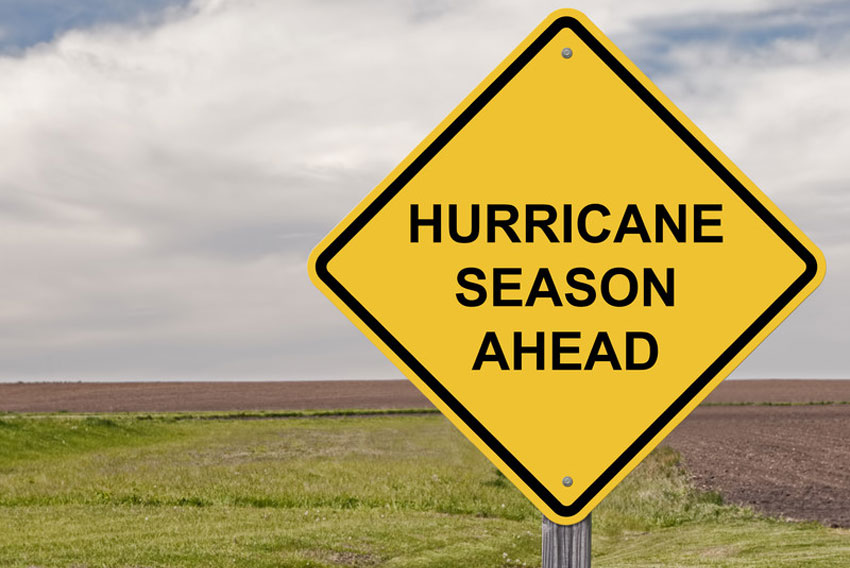According to the latest reports, the 2018 hurricane season officially begins on June 1 and ends on November 30, with the peak occurring mid-August through late October. It is time to start rounding up important documents for safekeeping, including insurance policies and videos or lists documenting what you own. The year 2017 saw three big hurricanes – Harvey, Irma and Maria that brought widespread death and destruction to Texas, Florida, Puerto Rico and the U.S. Virgin Islands. After Katrina in 2005, Hurricane Harvey became the second costliest hurricane, with damage costs of $125 billion, while Irma was the strongest storm on record in the Atlantic. Survivors of such major natural disasters can take legal advice to deal with losses related to property and insurances. Hurricane damage lawyers use the service of legal transcription companies to maintain accurate documentation related to property damage of their clients.
– Jodi Picoult
Though hurricanes reaching Category 3 and higher are considered as major hurricanes, Category 1 and 2 storms are also dangerous and require preparatory measures to avoid significant loss of life and damage. Local governments and organizations are urging everyone to plan ahead to stay as safe as possible this year. Attention and effort can help prevent severe damage and mitigate the effects of a hurricane-related disruption of your business.
Here are some valuable hurricane preparedness tips for businesses:
Develop a comprehensive plan
According to Andrew Higgins, Technical Manager at Allianz Global Corporate & Specialty (AGCS), the first thing companies should do is to test and update their emergency preparedness plans that specifically address how businesses respond to a hurricane. Also make sure the plan is comprehensive, in writing and test it on an annual basis. If businesses do those things and keep their plan up to date, they can reduce their damage and downtime in the event of severe weather.
The Occupational Safety & Health Administration (OSHA) recommends that companies develop an Emergency Action Plan (EAP) and hurricane planning can be considered as a part of the EAP planning. According to OSHA, an evacuation plan to ensure workers’ safety should include:
- Conditions that will activate the plan
- Chain of command
- Emergency functions and who will perform them
- Specific evacuation procedures, including routes and exits
- Procedures for accounting for personnel, customers and visitors
- Equipment for personnel
OSHA also comes with a Hurricane eMatrix that is designed to help employers make decisions to protect workers and offers recommendations for personal protective equipment, safe work practices, and precautions for each activity. It highlights a number of tasks and operations associated with disaster response and recovery.
An effective hurricane survival plan should be written down and reviewed annually. Also be well-prepared to put the plan in place, when the hurricane approaches.
Safeguard your documents
Before the hurricane, it is critical to back up all important personal (driver’s license, birth certificate, adoption papers, Social Security cards, passports, citizenship papers, child custody papers, military IDs, and records/photos) and official documents (profit and loss statements, tax returns, employee data, accounts receivable, customer records, and other personnel and administrative documents). Storing these data to the cloud would be an ideal way to keep it safe.
Document conversion can get your paper records ready for storage in the cloud. Businesses can also backup copies of relevant documents, convert them into microfilms, and store them in a safe area above the ground level. Consider business transcription services to preserve and manage your audio and video recordings. All the important paper documents must be stored together in a water-tight container — make sure more than one person knows where they are kept.
Keep your employees safe
Prepare employees to face any contingency by communicating your hurricane plan with them, by making them understand their roles, responsibilities and expectations. Also confirm that your employee contact lists are up to date.
All doors and windows must be secured to protect against flying debris.
Prevent damage to property
- As power outages will last for weeks to possibly months, charge all devices completely and keep them plugged in as long as you can.
- Check whether the office’s fire protection equipment is working, as it the most effective tool for controlling fires before the firefighters arrive.
- Assign a recovery team to take steps to get your business back to normal soon after the storm ends.
- Review insurance policies to make sure that there is adequate coverage. Check whether the insurance cover damage to contents, including vital records and office equipment and include liability coverage for injury to employees as well as potential lawsuits from customers.
The American Bar Association (ABA) also provides clear details on how to replace important documents during a disaster recovery. Along with helping on temporary housing, The Federal Emergency Management Agency (FEMA) can also help replace certain personal belongings including vehicles, furniture, appliances, and other important personal property.
Make sure that all hurricane emergency supplies such as first aid kits, one flashlight per person are working during the hurricane, emergency tool kit, food and water supplies and extra batteries for both radio and flashlights are stored in a secure area that is accessible during an emergency.
What is important is for businesses to understand what exactly their storm-related risks are. High winds, flooding, and storms are likely during a hurricane. Consider whether your facility is exposed to all these or one or two of these. Only with a clear understanding of the risks involved you can prepare well to meet the impending hurricane.
In our next blog, we’ll discuss the relevance of flood insurance policy in detail.




